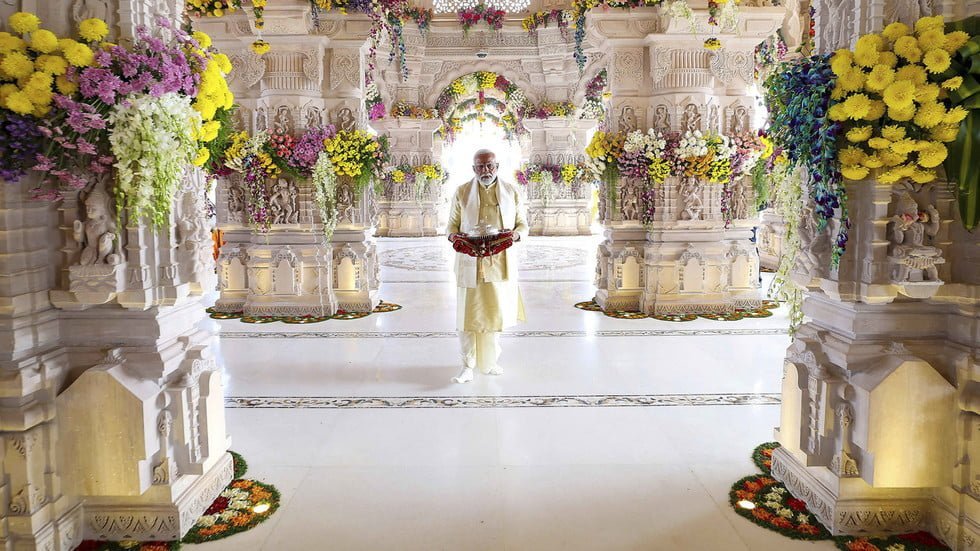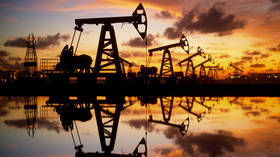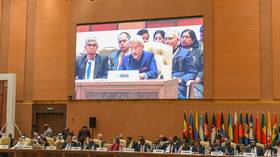New Delhi doesn’t even have to try. In a divided world, the country’s scale and its cultural traditions make it a major player
It was India’s biggest politico-religious event. Prime Minister Narendra Modi inaugurated a massive Hindu temple in Ayodhya, the holy city where Rama– one of the most important gods in the pantheon – is said to have been born.
The ceremony would have remained solely in the religious sphere were it not for the fundamental political processes taking place both in India and around the world. The end of the era of universalism – epitomized by the liberal political-economic globalization of the late 1980s to the 2010s – has fueled the demand for specific identities everywhere. India has plenty of these: indeed, a more diverse and distinctive civilizational community would be hard to find. But since Modi’s Bharatiya Janata Party came to power in the middle of the last decade, the emphasis has been on ideological consolidation around Hindu identity.
Attitudes are mixed. Although Hindus make up 80%of India’s population (over a billion people), there is plenty of support for a more secular and less nationalistic orientation (represented by the country’s second main party, the Indian National Congress, which is in crisis) by followers of other religions. Islam is the nation’s second largest religion, with over 200 million adherents, making India the third largest Muslim country in the world.
The sensitivity surrounding the Ayodhya situation stems from the fact that there was a mosque on the site of the present temple, built several centuries ago under Mughal rule in place of a demolished Hindu religious building. Long-standing tensions have escalated on more than one occasion, especially since India’s independence, and in the early 1990s there were large-scale bloody clashes over religious issues, with many casualties.
The current rallies are also part of the campaign for spring’s general election. I was in New Delhi earlier this year for the Valdai Club retreat, and had the opportunity to witness the intense campaigning. Modi’s portraits and statements accompany him on all highways, and television channels cover his activities with the utmost care. India has just completed a very successful presidency of the G20, and reminders of that period are everywhere – a testament to the country’s rapidly growing international role.
It is hard to argue with the latter, although external factors have played a significant part alongside India’s truly effective and sometimes spectacular positioning. Heightened global tensions reduce the ability of major players to pursue their interests and increase their desire to find strong partners. And polarization along West-Russia and US-China lines makes India, a powerful and fairly independent international player, an important factor capable of shifting the overall balance in one direction or the other.
India is a complex country – objectively burdened with a multitude of problems – which will always devote maximum resources and energy to self-development and maintaining internal stability. Modi’s attempt to build an ideological and political vertical is partly designed to free up some energy for external endeavors, but the result remains to be seen. India, however, has a certain peculiarity. Its size (both demographic and in terms of its market), location and cultural tradition (self-sufficiency, based on a strong sense of self-confidence, to some extent even of its own superiority) guarantee it a significant place on the world stage.
As such, the mere fact of its existence is enough to render it a player.
Modi’s goal is to make India a developed nation by the centenary of its independence in 2047. This can be interpreted in different ways, but it is clear that the country of one and a half billion people is still a long way from achieving this goal. And that is where all efforts, including foreign policy, will be directed.
Today’s India is interesting not only in its own right, but also as an example of how an independent state behaves in a changing international environment. On the one hand, India (like many other countries) is happy with the increasing level of democracy in the global environment. The great powers can no longer impose their demands on others as they did a decade ago. The more room for maneuver and the less binding the relationship, the better. On the other hand, if there is one constant in India’s view of international security, it is distrust and fear of China.
Russia is well respected in India and the legacy of the past decades is strong. But it is time to build a new edifice on this foundation, taking into account other global realities. Otherwise, sooner or later, it will become a reminder of the once shining temple of bilateral interaction rather than the basis for its renaissance.
This article was first published by Rossiyskaya Gazeta newspaper, translated and edited by the RT team
You can share this story on social media:





